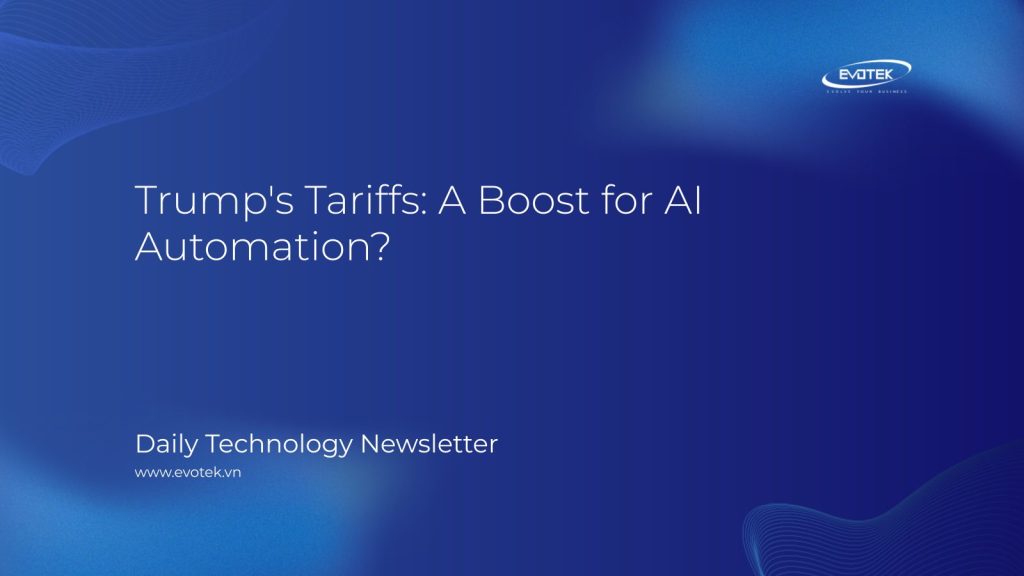President Trump’s recent tariff announcements, touted as a means to revitalize American manufacturing and bring jobs back to the U.S., may unintentionally accelerate the adoption of AI and automation, according to economists.
While the administration aims to encourage companies to create jobs domestically, experts suggest the tariffs, coupled with advancements in AI and robotics, could incentivize businesses to automate tasks previously performed by human labor.
Carl Benedikt Frey, an economist and professor of AI & work at Oxford University, argues that increased costs in the U.S. will push companies to find ways to automate even more tasks. The traditional cost-benefit analysis changes when labor costs rise; automation becomes a more attractive alternative.
It’s worth noting that immediate automation might not be the direct result of tariffs. Significant investments in machinery are often required, and economic uncertainty can deter companies from making substantial capital expenditures. However, Nobel laureate Daron Acemoglu predicts that if tariffs persist, companies will eventually bring supply chains back to the U.S. but through AI and robots.
The tariffs imposed in 2018 did not lead to a major surge in automation and were associated with job losses due to higher production costs and reduced export competitiveness. However, some economists believe the current situation is different due to advancements in AI and robotics since then.
Frey highlights that improved technological capabilities, particularly in AI, make automation more feasible. Robots are becoming more adaptable and cheaper to produce, making them a more viable option for businesses.
Lucas Hansen, co-founder of CivAI, notes that applying robots to new purposes requires less effort, especially as the technology matures. This could significantly reduce the R&D investment needed for mid-sized manufacturing operations to automate.
Acemoglu remains skeptical about the short-term prospects of flexible robots, suggesting they are still about 10 years away. However, the consensus is that tariffs will likely lead to increased automation.
Erik Brynjolfsson, director of the Digital Economy Lab at Stanford University, warns that tariffs will reduce efficiency and make everyone poorer. Disruptions to supply chains and increased import costs will likely outweigh productivity gains from automation.
Despite the Trump Administration’s stated goal of ensuring AI benefits American workers, history suggests automation often leads to fewer jobs and increased leverage for employers, according to labor historian Brian Merchant.

 日本語
日本語 한국어
한국어 Tiếng Việt
Tiếng Việt 简体中文
简体中文